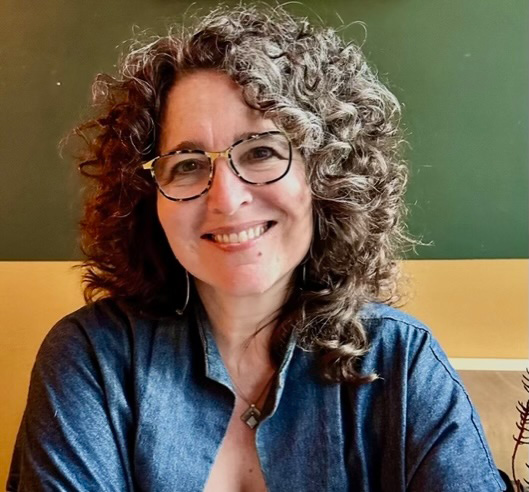If you haven't done so already, check out Rebecca's award-winning essay "Where's Charlie?" and then return here for a chat with the author.
WOW: Congratulations on placing in the Q1 2024 Creative Nonfiction Contest! How did you begin writing your essay and how did it and your writing processes evolve as you wrote?
Rebecca: I was taking care of my mother and having very vivid and intense dreams. I would wake up, not knowing what to do with the feelings and disturbance they evoked so I thought: why not write about them? The process evolved as I realized that the dream was just a starting point, a way to connect other things (e.g. blood), to try and give an overall sense of what it is like caring for a parent with dementia and also what it’s like in a memory care center full of people with a similar condition.
WOW: I love that you were able to process your dreams to create such a powerful essay. What did you learn about yourself or your writing by creating this essay?
Rebecca: I am not new to writing but am somewhat new to creative writing. Every time I write, I discover what I can do when I play with words and when I try to connect stories thematically rather than chronologically. When I started to think about blood, I realized how often it was appearing in my life and my mother’s life. It was this connection that I wanted to explore through larger issues (e.g. memory, loss, frailty) and small ones (short-lived romance among people with dementia).
WOW: That’s such an interesting distinction between being a writer and being a creative writer; I think it’s that creative part that allows us to make such interesting and useful connections among images that might otherwise seem disconnected, just as you described. What connections do you see between teaching or writing on topics like drug policy and addiction and your fiction and creative nonfiction writing?
Rebecca: I often say that, as a sociologist, I’m a “professional observer,” but I pushed against the limits to sociology when I was caring for my mother and spending several hours a week in a memory care facility with her. This personal entry point to a confining institution deeply affected me and my approach to writing. Creative writing allows me the freedom to explore the sociological issues I care about which are human issues, really, and not the purview of one academic discipline.
I find that students are much better able to understand sociological material if they can connect to it to themselves personally, so I incorporate creative assignments into my sociology classes and have hosted readings so students can share their work publicly. I really try to emphasize, when I teach writing, that creative nonfiction is not advocacy or persuasive writing: it’s a way to show the human condition in all its variety and complexity, its ugliness and beauty.
WOW: That’s a lovely way to describe the power of creative nonfiction. Which creative nonfiction essays or writers have inspired you most, and in what ways did they inspire you?
Rebecca: I am inspired by so many writers. Recently it’s Shirley Hazzard, Toni Morrison, Philip Roth, Paula Fox. But a few creative non-fiction pieces have really been influential in my writing. “Woven” by Lidia Yuknavitch is one of the most beautiful pieces I’ve read (and I have, multiple times). My writing teacher Arya Samuelson inspires me and her recent essay “I am no beekeeper” is a stunning example of the woven essay. I marvel at Deesha Philyaw’s “Whiting,” every time I read it. Annie Ernaux’s The Years influenced me with its poignancy about social history and individual memory. I could list so many writers, which is a wonderful thing – there is so much extraordinary writing out there!
WOW: I agree! Thanks for sharing some of your favorites. If you could tell your younger self anything about writing, what would it be?
Rebecca: Just write and don’t worry about whether you’re good or not and don’t become preoccupied with what’s fashionable. And play! Have fun with writing and finding your voice.
WOW: Excellent advice! Anything else you’d like to add?
Rebecca: I would like to add a pitch for creative nonfiction. I love how it allows you to start with a kernel of a truth and then add on different layers so you get an overall story correct, but it’s not reporting. So, it is about finding beautiful ways to share a truth of human experiences with others.
WOW: Thank you for sharing your writing with us and for your thoughtful responses. Happy writing!
Interviewed by Anne Greenawalt, founder and editor-in-chief of Sport Stories Press, which publishes sports books by, for, and about sportswomen and amateur athletes and offers developmental editing and ghostwriting services to partially fund the press. Engage on Twitter or Instagram @GreenMachine459.


No comments:
Post a Comment
We love to hear from readers! Please leave a comment. :)